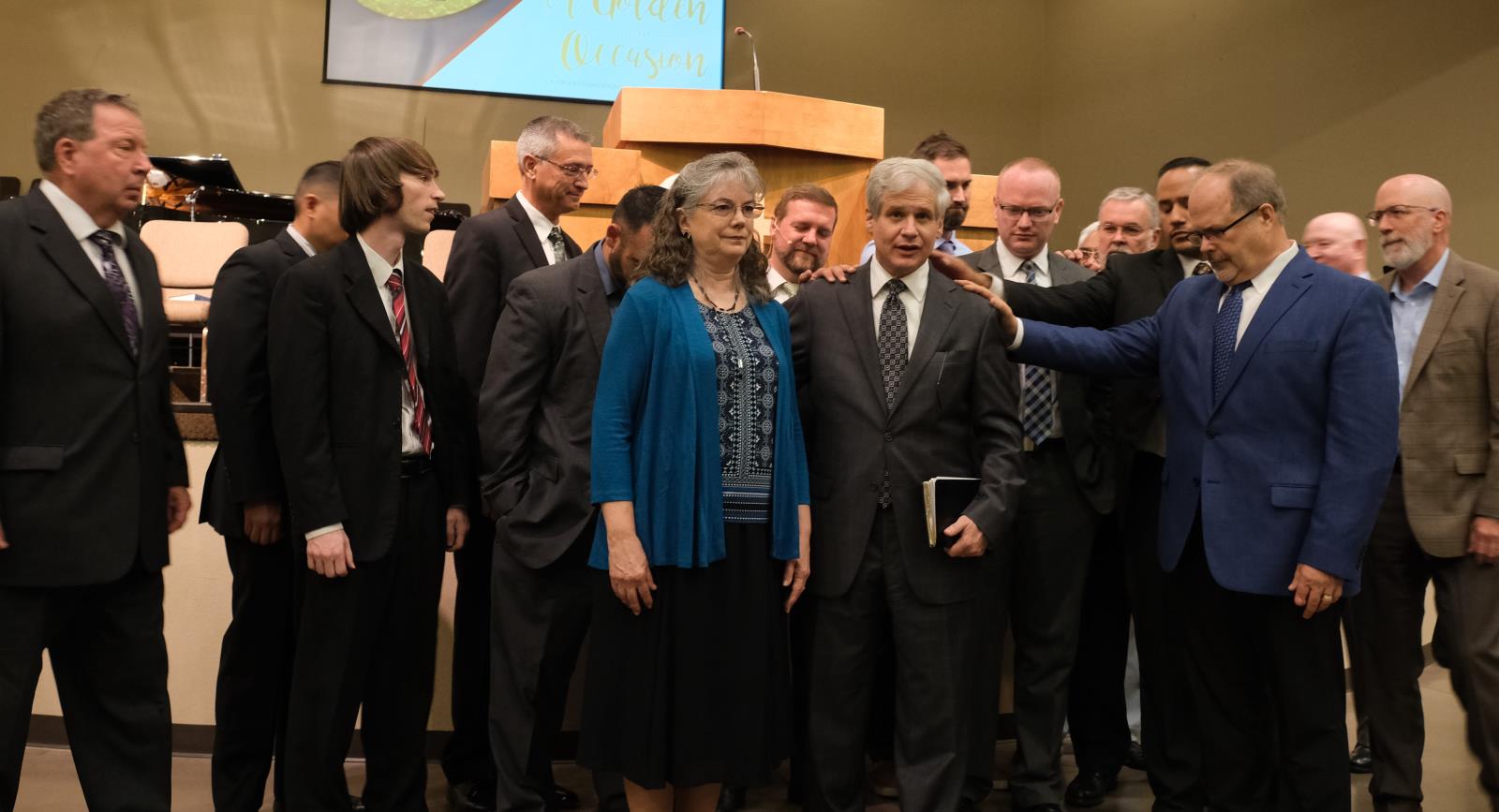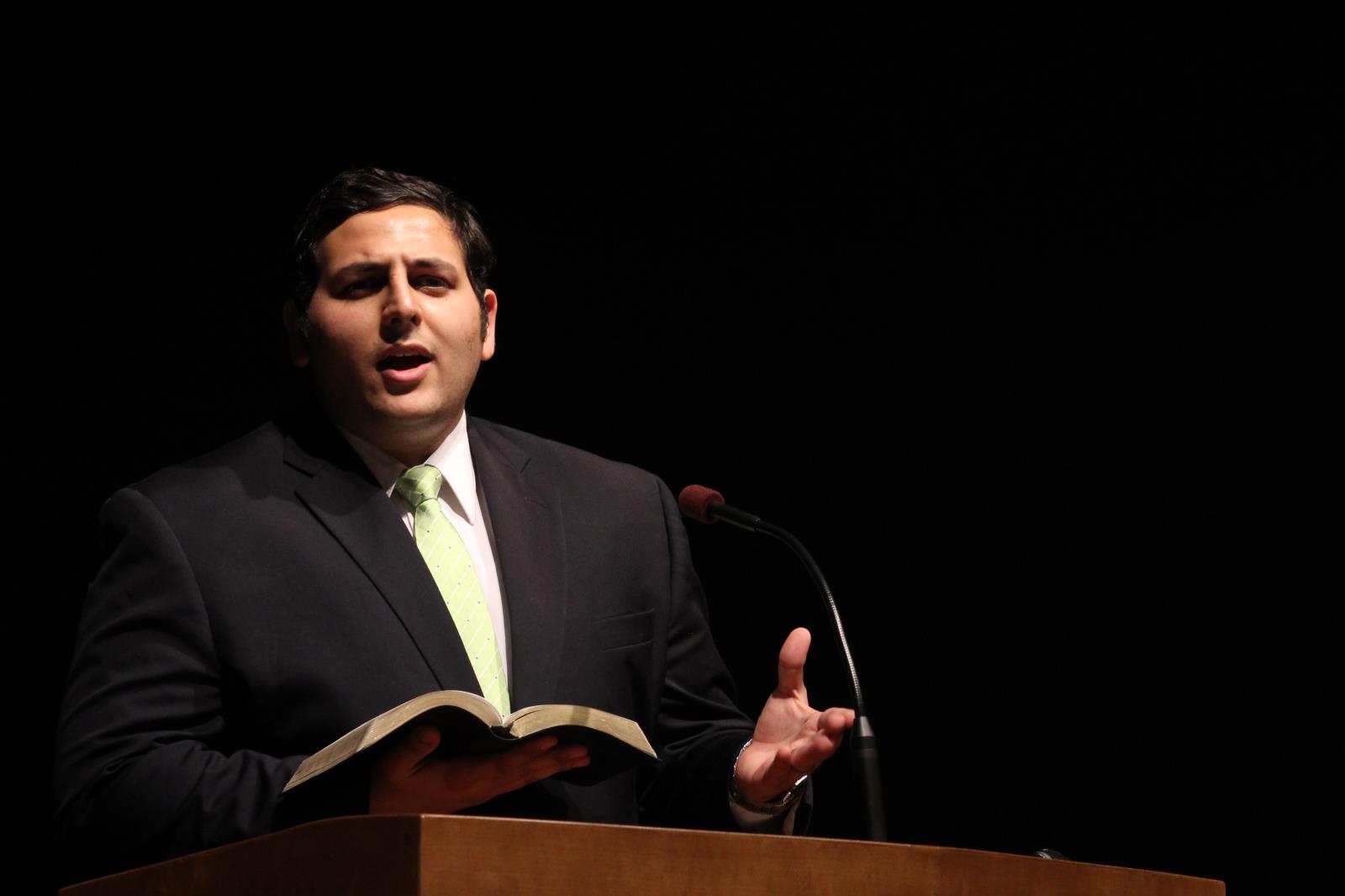by Nathan M. Mestler, President and CEO on Oct 14, 2025
Called in Community: The Local Church and the Shaping of Pastoral Ministry
The call to pastoral ministry is not a private revelation or personal ambition—it is a divine summons discerned and nurtured within the life of the local church. In the Pastoral Epistles, especially 1 Timothy, Paul presents a framework for understanding this call that is deeply ecclesial and theological. Ministry is not self-appointed; it is a stewardship entrusted by God and affirmed by the church.
Four key components emerge from 1 Timothy that shape our understanding of the call to ministry: a commitment to the Gospel, Godly character, recognition of gifts by the church, and God’s sovereign preparation.
Commitment to the Gospel: Stewarding God’s Program (1 Timothy 1:3)
Paul’s opening charge to Timothy is clear: “Stay there in Ephesus so that you may command certain people not to teach false doctrines” (1 Tim. 1:3). Timothy is entrusted with guarding the Gospel—the “stewardship from God that is by faith” (1 Tim. 1:4, ESV). The Greek word oikonomia conveys the idea of managing God’s household, which is His redemptive plan.
A true call to ministry begins with a deep commitment to this Gospel stewardship. The pastor is not the architect of the church’s mission but its faithful steward. This includes teaching sound doctrine, refuting error, and shepherding the church in truth. The local church is the proving ground for this commitment, where a minister’s fidelity to Scripture and Gospel-centered leadership is tested and affirmed.
Godly Character: The Moral Foundation of Ministry
 In 1 Timothy 3:1–7, Paul outlines qualifications for overseers, focusing not on talent but on character. The pastor must be “above reproach,” “self-controlled,” “respectable,” and “not a lover of money.” He must manage his household well and have a good reputation with outsiders.
In 1 Timothy 3:1–7, Paul outlines qualifications for overseers, focusing not on talent but on character. The pastor must be “above reproach,” “self-controlled,” “respectable,” and “not a lover of money.” He must manage his household well and have a good reputation with outsiders.
Ministry is not just about gifting—it’s about integrity. The Gospel must be embodied in the life of the minister. The local church plays a vital role in discerning this character, observing how a person lives, serves, and relates to others. Godly character is forged in community, tested in conflict, and refined through discipleship.
Paul’s exhortation to Timothy to “watch your life and doctrine closely” (1 Tim. 4:16) underscores the inseparable link between belief and behavior. The church must affirm not only doctrinal soundness but also spiritual maturity.
Recognition of Gifts: Affirmation by the Church
The third component of the call is communal recognition. Paul reminds Timothy, “Do not neglect your gift, which was given you through prophecy when the body of elders laid their hands on you” (1 Tim. 4:14). The call to ministry is not self-authenticated—it is discerned and affirmed by the chu rch.
rch.
The laying on of hands signifies public endorsement of God’s work in a person’s life. The church, especially its leaders, recognizes spiritual gifts and confirms readiness for ministry. This recognition begins informally as the church observes faithfulness, leadership, and fruitfulness in everyday life.
Importantly, this affirmation is not just about ability—it’s about calling. The church must discern whether gifts are accompanied by a divine summons. This communal discernment protects against self-deception and ensures that ministry is rooted in God’s purpose.
Sovereign Preparation: God’s Work in Timothy’s Life
Timothy’s story beautifully illustrates God’s sovereign preparation. Though his father was a Greek and likely not a believer (Acts 16:1), Timothy was taught the Scriptures from childhood by his mother Eunice and grandmother Lois (2 Tim. 1:5; 3:15). This early spiritual formation laid a foundation for his future ministry.
God’s providence is evident in the way He used faithful women to shape Timothy’s heart and mind. Even without a believing father, Timothy was nurtured in truth. Then, in God’s perfect timing, Paul entered his life. Impressed by Timothy’s reputation among believers, Paul invited him to join his missionary work (Acts 16:2–3). Paul later calls him his “true child in the faith” (1 Tim. 1:2), reflecting a deep spiritual bond and mentorship.
Timothy’s preparation was not sudden—it was sovereign. God used family, Scripture, and mentorship to shape him for ministry. The local church must be attentive to such patterns of providence, recognizing how God prepares individuals through life experiences, relationships, and spiritual growth.
 Conclusion: A Communal and Theological Call
Conclusion: A Communal and Theological Call
The call to pastoral ministry is a sacred trust, discerned and affirmed within the local church. The four components—Gospel commitment, Godly character, communal recognition, and sovereign preparation—form a Biblical framework for understanding this call.
In a culture that often values charisma over character and platform over pastoral care, 1 Timothy calls us back to a Gospel-centered vision of ministry. The local church is not a stepping stone to influence—it is the crucible of calling. It is where the Gospel is lived, character is formed, gifts are recognized, and God’s hand is revealed.
For those considering ministry, the question is not just “Do I feel called?” but “Has the church discerned God’s call in my life?” And for churches, the responsibility is to faithfully steward this process, affirming those whom God has prepared to serve His people and proclaim His truth.